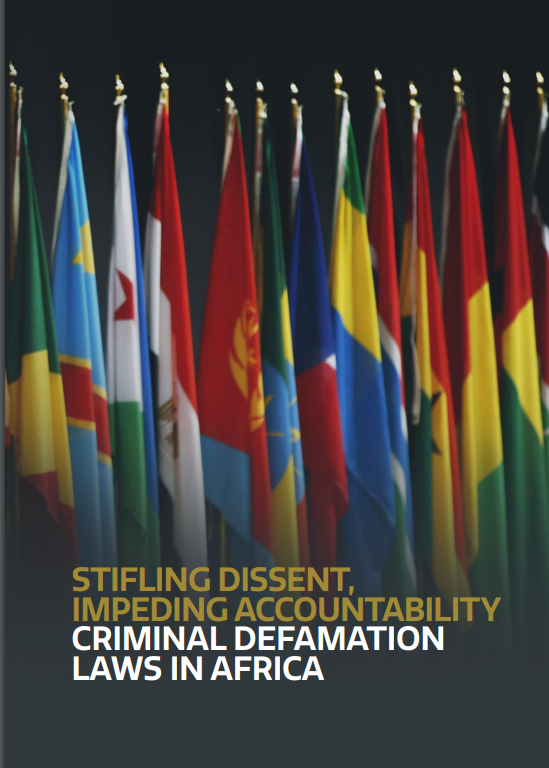Stifling Dissent, Impeding Accountability
In many countries in Africa, governments continue to stifle freedom of expression, open debate, political criticism and media reporting using laws that make it a crime to say, write or publish anything that they consider defamatory or insulting. These laws are usually vague and sweepingly broad, opening them to such wide interpretation that they act as an ever-present constraint, particularly on investigative journalism and other aspects of the media’s capacity to perform its public watchdog role.
The threat of criminal sanctions that the laws provide inevitably deters media investigations into and reporting of issues governments consider sensitive or embarrassing, such as high-level corruption, official malpractice or law-breaking, thereby facilitating official secrecy and undermining accountability. In many cases, where journalists, editors or publishers have refused to be cowed into self-censorship by these criminal defamation laws, they have been subject to arrest, detention, prosecution and long drawn out trials, and sometimes imprisonment for months or even years.
This report focuses on the continued retention of these laws in four African countries and assesses the impact of their repeal, over 16 years ago, in a fifth. A brief survey was also undertaken with writers across the continent on the impact of criminal defamation, libel and insult laws. In two of the focus countries, Uganda and Zambia, the authorities continue to apply the laws criminalising defamation and insult with vigour and show little sign of dispensing with them. In two others, Sierra Leone and South Africa, the laws remain on the statute book but their governments have publicly pledged to abolish them and make defamation a purely civil law matter. If and when they do so, they will be following the example set in Ghana which, in 2001, became the first country in Africa to decriminalise defamation. In this report, we review and assess the impact, both positive and negative, of decriminalisation in Ghana 16 years after the law was changed.

